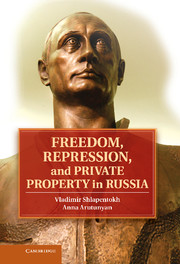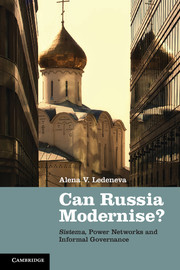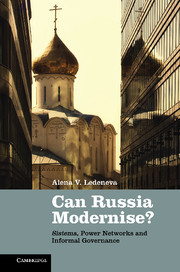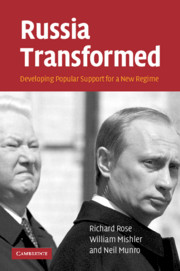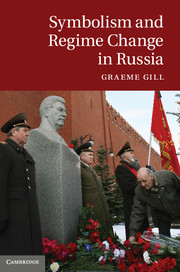Freedom, Repression, and Private Property in Russia
This study demonstrates how the emergence of private property and a market economy after the Soviet Union's collapse enabled a degree of freedom while simultaneously supporting authoritarianism. Based on case studies, Vladimir Shlapentokh and Anna Arutunyan analyze how private property and free markets spawn feudal elements in society. These elements are so strong in post-Communist Russia that they prevent the formation of a true democratic society, while making it impossible to return to totalitarianism. The authors describe the resulting Russian society as having three types of social organization: authoritarian, feudal and liberal. The authors examine the adaptation of Soviet-era institutions like security forces, the police and the army to free market conditions and how they generated corruption; the belief that the KGB was relatively free from corruption; how large property holdings merge with power and necessitate repression; and how property relations affect government management and suppression.
- Shows the conflicting nature of privatization in societies with weak government
- Explains how general high levels of corruption lead to de-professionalization of the labor force in society, decreases in the prestige of science and education, and the breakdown of social ties
Reviews & endorsements
"Arutunyan and Shlapentokh, a verteran sociologist with a deep understanding of Russian society, argue that Putin's Russia is still shaped by many social institutions inherited from the Soviet era … Recommended. Upper-division undergraduate, graduate, and research collections."
Paul Rutland, Choice
Product details
September 2013Hardback
9781107042148
218 pages
229 × 152 × 14 mm
0.5kg
Available
Table of Contents
- 1. Private property and big money in political regimes in Soviet and post-Soviet Russia: a theoretical overview
- 2. Ideology and public opinion in a centralized society and in a fragmented society
- 3. Corruption, the power of state and big business in the Soviet and post-Soviet regimes
- 4. Enemies and the issue of legitimization in the Soviet and post-Soviet regimes
- 5. Political police before and after
- 6. Treatment of strikers in Soviet and post-Soviet times: Novocherkassk and Mezhdurechensk
- 7. Foreign policy: the geopolitical factor before and money after
- 8. A freedom which Putin dearly loves - the right to leave his country
- Conclusion.

